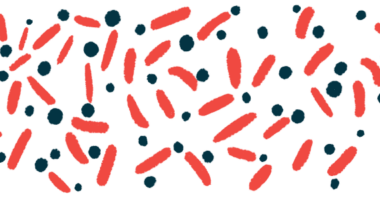Phase 3 Trial of Ultomiris in ALS Patients Stopping for Lack of Efficacy

KamolpornAk/Shutterstock
Alexion Pharmaceuticals is stopping further work on Ultomiris (ravulizumab) — its approved therapy for complement-associated rare blood disorders — as a potential treatment of amyotrophic lateral sclerosis (ALS) based on interim data from the CHAMPION-ALS Phase 3 clinical trial.
While top-line results were expected by mid-2022, the study’s independent data monitoring committee recommended the trial be stopped early due to lack of Ultomiris’ efficacy in a pre-specified interim analysis.
No new safety concerns were identified, and the therapy’s safety profile was consistent with that previously reported.
Patients in the CHAMPION-ALS study (NCT04248465) will stop receiving Ultomiris and complete any necessary follow-up assessments. Alexion, the group within AstraZeneca focused on rare diseases, plans to share the trial’s data in the future to inform ongoing research.
“We are disappointed by this outcome and what it means for patients with this devastating disease,” Gianluca Pirozzi, MD, PhD, Alexion’s senior vice president and head of development and safety, said in a press release.
“We would like to thank the entire ALS community as well as investigators and healthcare professionals who dedicated their time and expertise to this trial,” Pirozzi added.
Ultomiris is a monoclonal antibody designed to block the activity of the complement protein 5, a component of the complement system — a set of more than 20 blood proteins forming part of the body’s immune system.
The therapy is approved in the U.S., Europe, and Japan for atypical hemolytic uremic syndrome and paroxysmal nocturnal hemoglobinuria, two rare and serious blood disorders caused by an overactivation of the complement system.
Uncontrolled complement system activation can trigger excessive inflammatory responses that contribute to many serious diseases, including ALS. Notably, complement system proteins have been implicated in ALS onset and motor symptom progression in patients.
By suppressing the complement system, Ultomiris was thought to have the potential to lower neuroinflammation and slow ALS progression.
CHAMPION-ALS, a pivotal trial, was assessing whether Ultomiris was superior to a placebo at slowing disease progression in 382 adults with ALS whose motor symptoms began in the prior three years. Eligible patients also had a percent predicted slow vital capacity — a standard measure of lung function — of at least 65%, and were not dependent on ventilatory support.
Participants, recruited at more than 90 sites across North America, Europe, and Asia, were randomly assigned to an into-the-vein infusion of either Ultomiris or a placebo every eight weeks, for a total of 50 weeks (nearly one year). Patients were allowed to continue their standard ALS treatments.
Those completing the treatment period were to be given the option of enrolling in the study’s open-label extension phase, in which all would be treated with Ultomiris for two years.
CHAMPION-ALS’s main goal was to measure changes in disease progression, as measured with the ALS Functional Rating Scale Revised.
Secondary goals included changes in lung function, muscle strength, and levels of neurofilament light chain (a marker of nerve cell damage), as well as the time patients lived without needing ventilation assistance and safety measures.
But in its interim analysis, the monitoring committee found that Ultomiris did not slow disease progression or promote significant improvements relative to placebo, failing to meet the study’s goals, Alexion announced.
“We continue to be confident in the potential of targeting C5 for complement-driven diseases and remain fully committed to our efforts to serve the rare disease community,” Pirozzi said.







